Desert Wild
Numbers, or Bamidbar (In the Wilderness) as it is commonly known in Hebrew, is not the most enthralling book of the Bible. It begins with a detailed census and description of the Israelites’ desert encampment, laboriously recounts 12 identical sacrifices offered by the tribal chieftains, and dwells on the people’s fear and loathing as they make their way from one outpost to the next. Its meticulous account of the desert wanderings conveys a sense of tedium and lurking danger. Avivah Gottlieb Zornberg’s latest book, Bewilderments: Reflections on the Book of Numbers, guides the reader across this unforgiving terrain with the help of the midrashic tradition, novelists such as Fyodor Dostoyevsky, George Eliot (on whom Zornberg wrote her Cambridge doctoral dissertation), Franz Kafka, and Marcel Proust, and contemporary thinkers including Stanley Cavell, Shoshana Felman, Michel Foucault, Jacques Lacan, and Julia Kristeva. The first surprise of Zornberg’s characteristically deft book is that this large and difficult cast does help.
Zornberg’s first career was as a scholar and teacher of English literature. In the 1980s, she began teaching the weekly Torah portions in Jerusalem. Not long after the publication of her first book, based on these classes, The Beginning of Desire: Reflections on Genesis, she was invited to participate in Bill Moyers’ popular PBS series on Genesis, where she offered elaborate psychoanalytical readings of the lives of the patriarchs, and her new career was well-launched. The Particulars of Rapture: Reflections on Exodus followed in 2001 and, some years later, The Murmuring Deep: Reflections on the Biblical Unconscious, which also focused on rabbinic interpretations of Genesis and Exodus. But one wondered whether her method of convening biblical characters for intense and revealing conversations with English poets, continental philosophers, and American psychoanalysts would work for the less dramatic parts of the Bible.
Several years ago, a Purim spoof entitled The Particulars of Bovine Rupture: Rejections from Leviticus offered a comic answer. With projected chapters such as “Mumim: Remembering the Dismembered” and “Shemitta: Trembling Before Gourds,” the caricature suggested that a Zornbergesque collection on the later books of the Torah could only be imagined as satire. If Zornberg was at all provoked by such a challenge in writing Bewilderments she responded not by focusing on Numbers’ sporadic stories but by staring down the ennui of the Zin desert and uncovering, beneath its shifting sands, her persistent concerns with human psychology and the nature of desire.
Thus, in Zornberg’s view the Israelite complaint about the manna is not a matter of culinary boredom, but a drama of divine and debased pleasures: “The manna, which is in general celebrated precisely for its plenitude . . . and for its regularity . . . is at the same time a figure of continual suspense: will it fall again tomorrow?” The heavenly bread comes to represent “a constant reminder that desire can never be finally appeased, so that the object of desire carries with it intimations of dependency, possible frustration, endless yearning and resentment . . . Like the gift of love, desire must be encountered anew each day.” Yes, the Israelites pine for delectable meat, but what they really want is to escape the easy gratification of physical and spiritual needs met by the manna’s and God’s constant presence—just as infants ultimately reject the predictable availability of mother’s milk.
In another essay, Zornberg takes on the blueprint of the Israelite camp in the second chapter of Numbers. Inspired by the midrashic idea that the tribal blazons were part of an elaborate tribal flag dance, Zornberg suggests that this display of patriotism carries with it a longing for belonging and a yearning for clear signs, or flags, of God’s presence in their midst.
There is a melancholy that runs through the verses of the book of Numbers that affords Zornberg’s prose a sense of urgency: “[I]n this very wilderness, they shall die to the last man.” Such knowledge casts a shadow over misjudgments made early in the book, such as the sending of scouts ahead to the land of Canaan, and it even colors apparent trivialities, like the double census, with a cloud of foreboding:
The people are counted twice, once at the beginning of the book and once toward the end . . . Between these two moments, a whole generation dies . . . The book of Numbers is a narrative of great sadness, in which the midbar, the wilderness, swallows up all the aspirations of a generation . . .
Bewilderments’ course of treatment for this terminal verdict is therapeutic. But Zornberg’s sessions are deeply informed by traditional Jewish sources, especially the interpretations of classic rabbinic midrash and the homilies of Hasidic masters. Zornberg appreciates and appropriates their relentless attempts to take language to its limits as a form of talk-therapy—which she then puts in conversation with modern masters, especially difficult Europeans, such as the ones mentioned.
The chapter on the sotah—the wayward wife of Numbers 5—is a good illustration of Zornberg’s working method. She begins with a somewhat novel midrashic reading of two passages in light of one another: the account of the ordeal to which the sotah is subjected and the question as to whether the daughters of Zelophehad could be his heirs (he had no sons). Both passages concern women and are animated by doubt. And both uncertainties receive a direct, divine resolution, but in diametrically opposed ways: God instructs Moses that the women “have spoken fittingly” about their inheritance rights, and He brings about the adulteress’s miraculous and violent demise in the tabernacle courtyard.
The key for Zornberg is the maddening doubts provoked by adultery. Here she is on good rabbinic, as well as psychoanalytic, ground: The midrash revocalizes the word sotah as shotah, madwoman, and the rabbis remark that “adulterers never sin until a spirit of madness enters into them.” For Zornberg, the threat of madness comes after the affair, in the silence and stifling of awareness. As the medieval Spanish Bible commentator Abraham ibn Ezra puts it, quoting a proverb, the adulteress “eats and wipes her mouth” (Proverbs 30:20), so that even she does not know whether she has sinned. Zornberg diagnoses adultery as a kind of dissociative act or state.
Zornberg also considers the implications of all this for society. She sees the sotah as representing the madness that lies on civilization’s borders. Foucault’s classic study of insane asylums in early modern France (as interpreted by literary scholar Shoshana Felman) is invoked to read the prescribed ordeal as society’s attempt to maintain the fiction of sanity. In a characteristic flourish, Zornberg quotes Dostoyevsky, who wrote, “It is not by locking up one’s neighbor that one can convince oneself of one’s own soundness of mind.”
Here, and in her other books, Zornberg’s interpretations imply a strong, if never explicitly stated, critique of traditional patriarchal religion, which has often been ignored by both her readers and her critics. Part of this, no doubt, is because of Zornberg’s impeccable lineage (she comes from a long line of rabbis) and her Orthodoxy, even frumkeit. More substantively, the reading of sotah is firmly grounded in a classic rabbinic approach that shifts the interpretive focus of the ordeal away from grisly punishments towards one in which doubts are miraculously dispelled and reconciliation is effected. According to rabbinic tradition, even if adultery was committed, the woman can achieve closure by admitting to the crime. Zornberg cites a meditation by the 19th-century Hasidic master, Rabbi Nachman of Bratslav, in order to highlight the psychological force of such a confession:
For R. Nahman, then, the fantasy life of human beings, their delusions, their sense of omnipotence—all can be re-spoken, in a different language, a better organization of letters. Like Freud’s “talking cure,” this confession transforms reality.
Besides the sotah and Moses, the main analysand is the lost generation of the wilderness. The Israelites’ desert wandering is a punishment for the sin of the spies, arguably, Judaism’s original sin. As Zornberg writes it is “the critical point, the great failure, that radically changes the future history of the people.” What troubles Zornberg most is the sheer perversity of the Israelites’ rebelliousness. This is a people that was brought out of back-breaking slavery in a miraculous display of divine might, yet from the beginning of their journey to the Promised Land there is concern that they will return to Egypt at the first sign of resistance. While anxiety about impending battles against the “giants” of Canaan is understandable, why prefer potential risk to certain death? Why the recurring death wish? “If only we had died in the land of Egypt, or in this wilderness, if only we had died!” (Num. 14:2)
Zornberg’s dauntingly erudite exploration of this and other troubling moments is not aimed at discerning the rationality of the Israelites’ actions. Just the opposite. She analyzes, she diagnoses, and she gradually brings the reader to greater awareness of the human unconscious, where irrational yet compelling desires churn. Her reading of Bamidbar is dark, but it is also reassuringly, perhaps even redemptively, human.
Suggested Reading
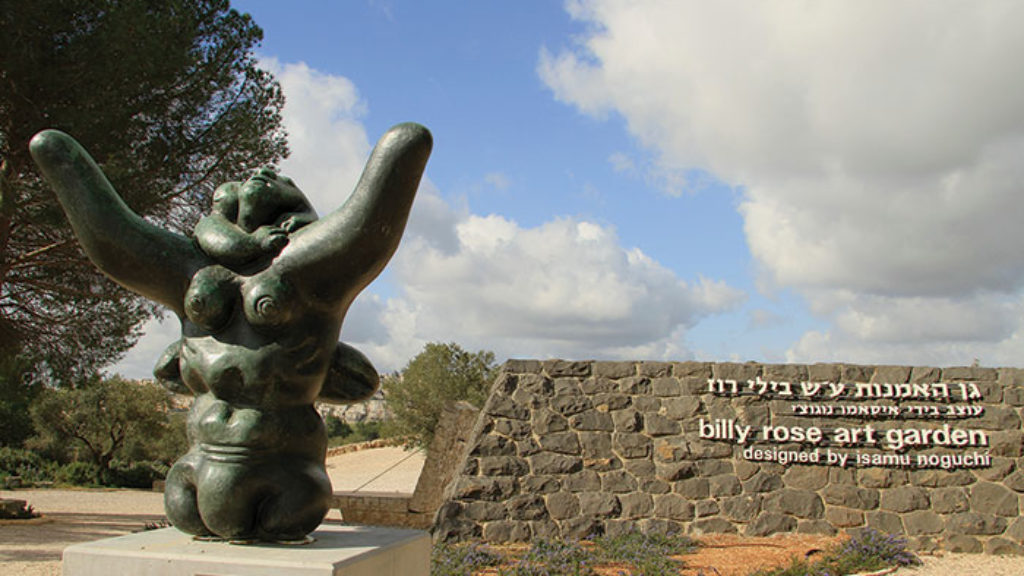
Bellow, Broadway Billy, and American Jewry
As Mark Cohen’s new biography reminds us, “Broadway” Billy Rose was America’s master showman for a quarter of a century. When a friend told Saul Bellow how Rose had saved a fellow Jew from an Italian prison in 1939 but refused to speak with him afterward, Bellow knew he had a story.
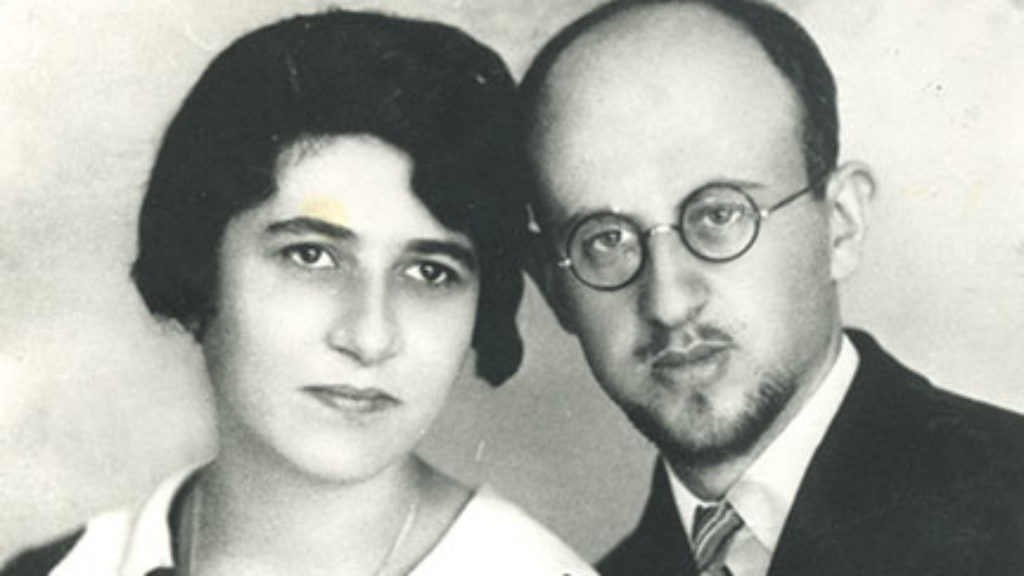
A Brand Rescued from the Fire
Leon Chameides has painstakingly collected his father’s writings from the fateful years of 1930s Polish Jewry, before the break-up of his family and the collapse of Jewish life in Nazi Europe.
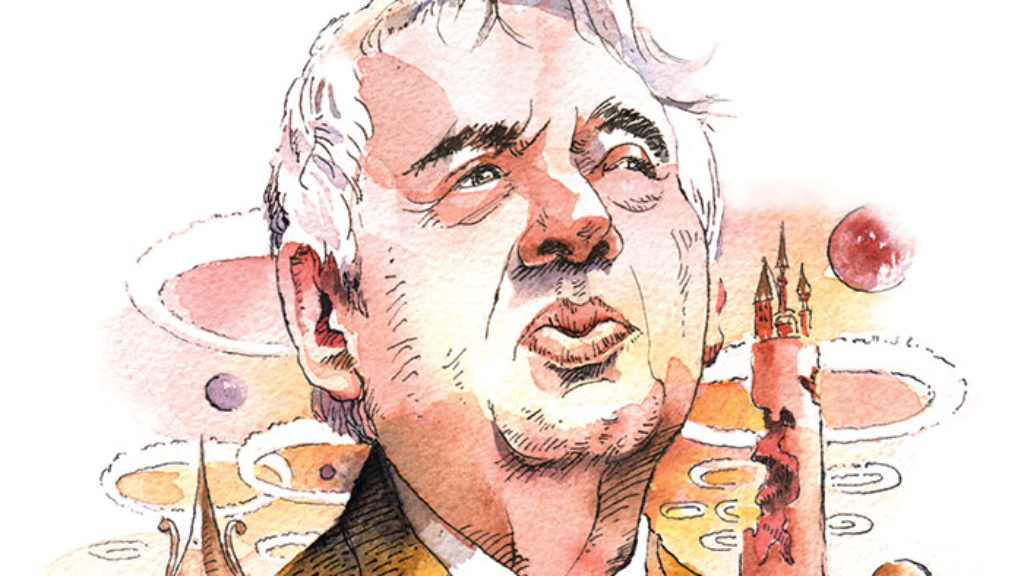
Harold Bloom: Anti-Inkling?
It’s a bit surprising to come across Harold Bloom’s confession that the literary work that has been his greatest obsession is not, say, Hamlet or Henry IV, but a relatively little-known 1920 fantasy novel.
What They Talk About When They Talk About Golems
On golems and global conspiracy theories.
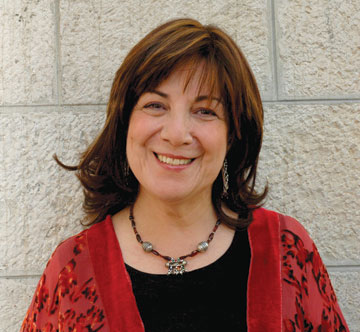
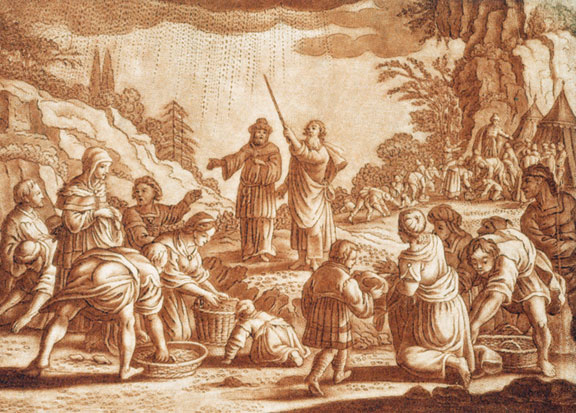
Comments
You must log in to comment Log In